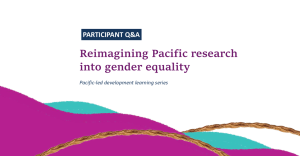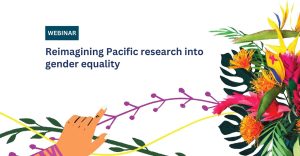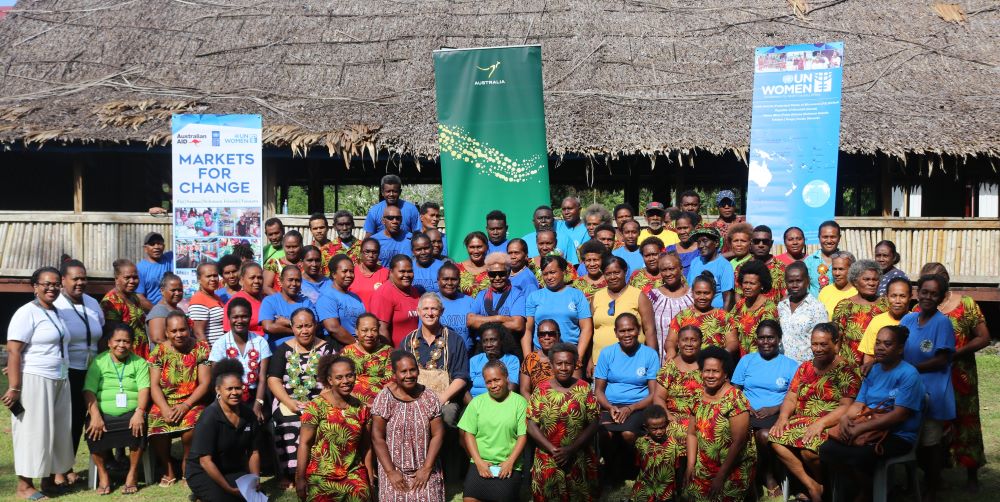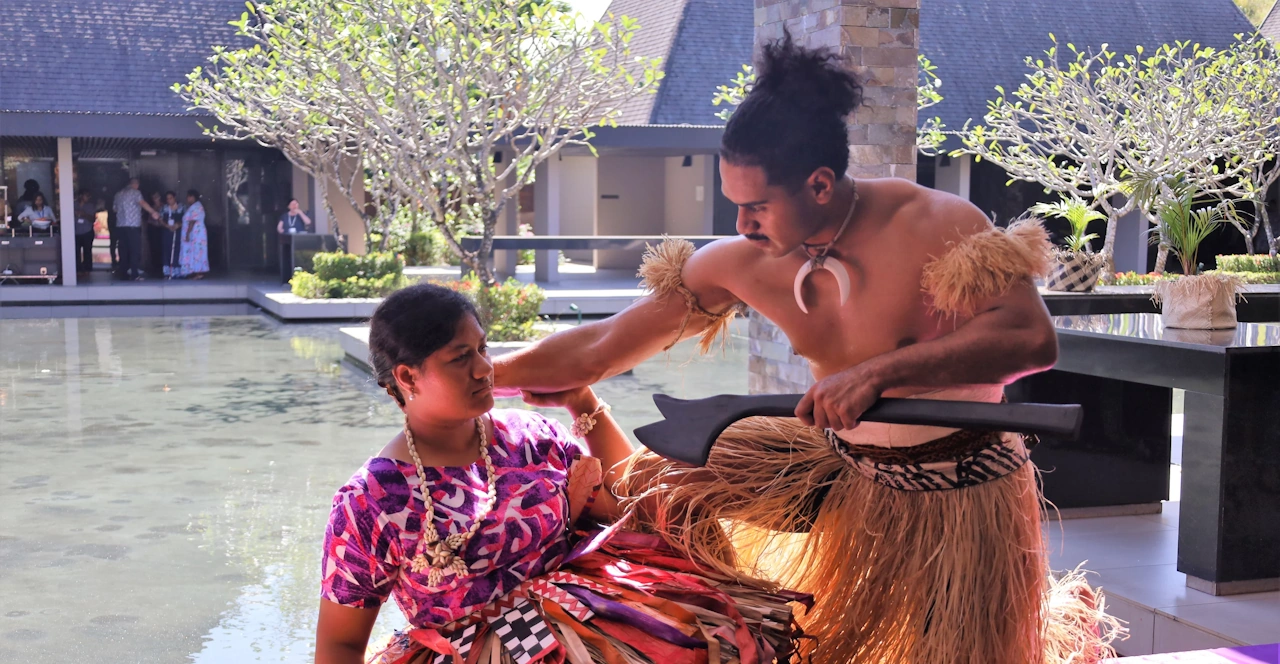“Nothing Without Us: Deepening partnership for an inclusive and equitable Blue Pacific Continent for persons with disabilities” is the theme of the 7th Regional Pacific Conference on Disabilities’ taking place this week, in Nadi, Fiji.
Inclusiveness of people with disability
For Rhema Misser, an advocate for disability inclusion in the Pacific for over 20 years, the conference theme reflects the critical need for inclusiveness of persons with disabilities in adequate responses, as well as the essential role persons with disabilities play in partnerships with government actors, donors and other development partners.
It’s about meaningful inclusiveness, rather than just a tick box exercise:
“It’s about having a space in the committee meetings. Not just being invited to a meeting to sit on the pew.”
“We should have the same understanding on what does inclusiveness mean. From our perspective, when we talk of inclusiveness, it means being part of discussing our issues, designing the programme that will accommodate our needs, and making decisions that will affect us.”
He warns that for inclusiveness to happen, certain barriers need to be removed. These include environmental and institutional barriers, as well as barriers around peoples’ attitudes and behaviours.
“We tend to forget that the greatest barriers of all is around attitudes. This is where stigma and discrimination come in. In order to break down or minimise stigmatisation and discrimination we need to enable full and effective participation of persons with disabilities. This is the whole idea behind inclusiveness.”
“In order to change lifestyles, we need to change belief systems”.
Partnerships and coordination
Persons with disabilities should be at the heart of partnerships and coordination efforts among disability organisations, government actors, donors, and service providers.
Rhema Misser argues that voices of person with disabilities need to be respected, heard and are central to partnerships on disability inclusion.
“Sometimes it gets mixed up: who is doing the advocacy, who is providing the services. It’s confusing. The reason why you need people with disabilities to participate is that only us understand our challenges, and only us understand how to cater to ourselves”.
From discussion to action
How do we translate the policies in place, and the numerous discussions into action?
“Over and over again we talk about inclusiveness and ensuring there is no one left behind. It’s a matter of how you can make these things real. When we talk about partnership, make the partnership real by allowing a space for people with disabilities to express their challenges, and talk with the partners and the service providers”.
For programmes to have an impact on the lives of person with disability, persons with disability need to have been involved. Up to now people with disabilities are left behind in education and economic development.
There is an economic argument to ensuring people with disability are involved:
“What is more costly? Doing something for people with disabilities or ignoring them?”
“If we educate people, they’ll be able to help support their families and contribute to our economic development.”
A Human Rights issue
However above all, disability is a human rights issue. As a leader in the disability movement for the last 20 years, Rhema Misser, has witnessed a change in paradigm. While disability used to be framed within the charity and medical models, it is now considered as a human rights issue. There is a change, however it is slow.
“Now people with disabilities are starting to realise their rights. ‘I have a right to education’. ‘I have a right to health’.
“We try to empower themselves and give them space. Once they have access to education and employment it will help to minimise the stigmatisation and discrimination from the community. People for the community focus on our disabilities, instead of our abilities.”
Like other organisation of persons with disability, Rhema Messer’s organisation in Tonga, the Lavamea Taeiloa Disabled People Association, Inc., aims to advocate and lobby on behalf of people with disabilities including women and girls. The organisation empowers people with disabilities to uphold their human rights – as outlined in the Convention on the Rights of Persons with Disabilities (CRPD).
It’s about advocacy for all – ‘You don’t have to look at the trees but at the big forest’.
Rhema Misser has been a leader in the disability movement for 20 years. He is the President and Founder of the Lavamea Taeiloa Disabled People Association, Inc. For four years, served as a board member of the Pacific Disability Forum in Fiji. He has been a Board Member of Pacific Women Lead for the past year.
The 7th Regional Pacific Conference on Disabilities is co-hosted by the Pacific Disability Forum (PDF) and the Pacific Islands Forum Secretariat (PIFS), in partnership with SPC. The Governments of Australia and New Zealand are long-term supporters of PDF and all its activities, including the regional conference.



